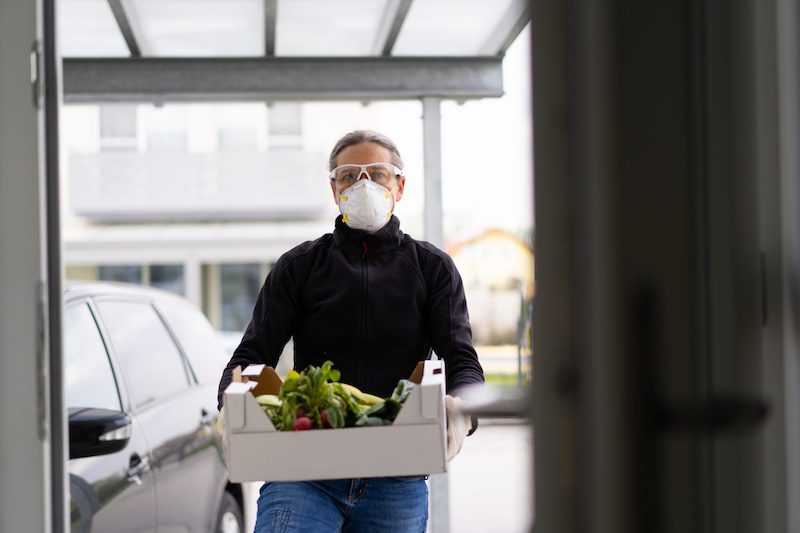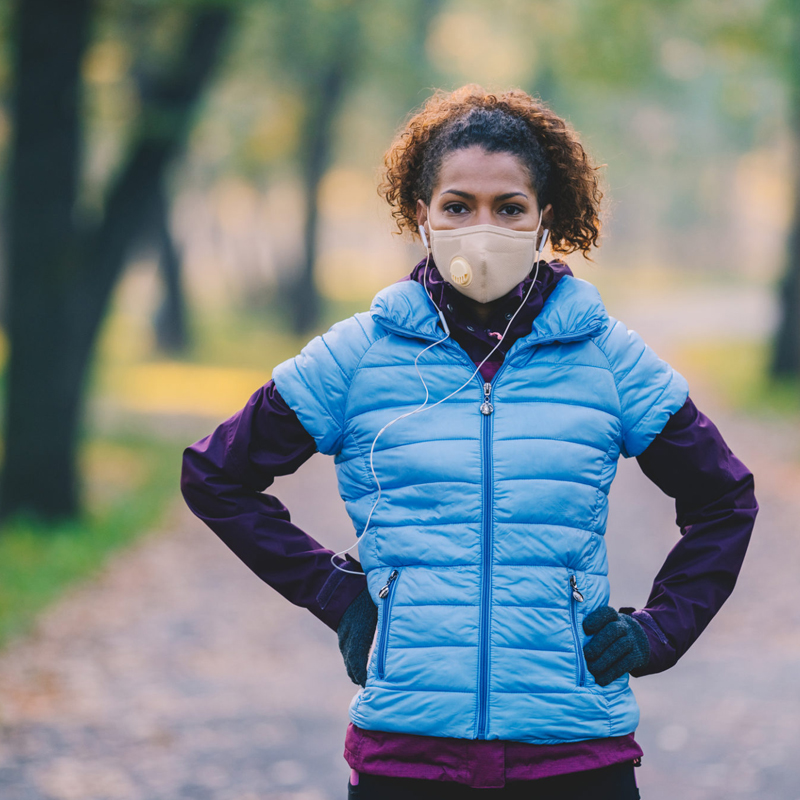Should You Wear Goggles For Coronavirus Protection?

August 20, 2020
We know that masks are a great method for helping prevent the spread of COVID-19. But, now experts are saying that more widespread use of eye protection in certain situations may be a good idea.
While the Centers for Disease Control and Prevention (CDC) don’t currently recommend goggles for everyone, the country’s top infectious disease expert Dr. Anthony Fauci recently told ABC News that “if you have goggles or a face shield, you should wear it.”
Does that mean you should add eye protection the next time you head to the grocery store? Well, the answer depends on a few of things - we’ll walk you through it.
Can you get COVID-19 through your eyes?
“We know the primary way COVID-19 is spread is by respiratory droplets through the air or by coming in contact with a contaminated surface and then touching the mucosal membranes in your nose and mouth,” says Jerry Zuckerman, M.D., vice president of infection prevention and control at Hackensack Meridian Health. “However, your eyes contain a similar mucosal lining that could also be an entry point for the virus.”
When are goggles a good idea?
The CDC officially recommends that eye protection be worn by health care workers in “areas with moderate to substantial community transmission.”
Dr. Fauci said in the ABC News interview that goggles were “not universally recommended” as of now, but “if you want to be really complete, you should probably use [eye protection] if you can.”
Proper eye protection should wrap around the front and side of your eyes. These include:
- Face shields
- Goggles
- Safety Glasses
Prescription eyewear, reading glasses and sunglasses are not protective due to the openings around the side of the frames.
If you’re in an area where you come into contact with a large number of people like a restaurant or grocery store, work indoors for long periods of time or have to work closely with others – wearing some form of goggles or face shield will likely provide greater protection from COVID-19. Those who might be at higher risk for severe complications from COVID-19 should consider wearing additional protection in situations where there’s more risk.
“For most, it’s a matter of preference and comfort level at this point,” says Dr. Zuckerman. “If you have the protective equipment and you want to use it, you will likely have a greater amount of protection.”
Masks are still the best type of protection
A well-made, properly fitting mask is the best way to help protect against and prevent the spread of COVID-19. Knowing how to wear a mask properly will provide the greatest protection against respiratory droplets that may contain the coronavirus.
“The most common way that COVID-19 is transmitted is through respiratory droplets, so making sure you’re protecting your nose and mouth really well is a good way to protect against the virus.” Dr. Zuckerman. “Adding goggles or a face shield helps cover all your mucosal membranes and gives you a more complete protection.”
Next Steps & Resources:
- To make an appointment with a doctor near you, call 800-822-8905 or visit our website.
Sources:
The material provided through HealthU is intended to be used as general information only and should not replace the advice of your physician. Always consult your physician for individual care.
Find a doctor near me
5 Mask Mistakes People Make

Avoid 5 common mask mistakes. Learn proper mask use to protect yourself and others. Call 800-822-8905 for an appointment.
How to Properly Wear a Facemask

Learn proper facemask use. Protect yourself and others. Simple instructions for wearing, cleaning, and preventing fogging. Improve your safety today.
Find a doctor near me

Why You Should Continue Wearing A Mask After Getting the COVID-19 Vaccine
To be clear - even after you receive the COVID-19 vaccine, it’s important to continue behaviors like mask-wearing and social distancing.

How to Work Out Comfortably with a Mask
Work out comfortably while wearing a mask. Learn expert tips from Palisades and Southern Ocean Medical Center doctors for safe, effective exercise.

Exposed to COVID? Here’s When to Get Tested
COVID-19 exposure? Learn when to get tested. Doctors Fleischman and Cicogna offer guidance and next steps. Call 800-822-8905.
